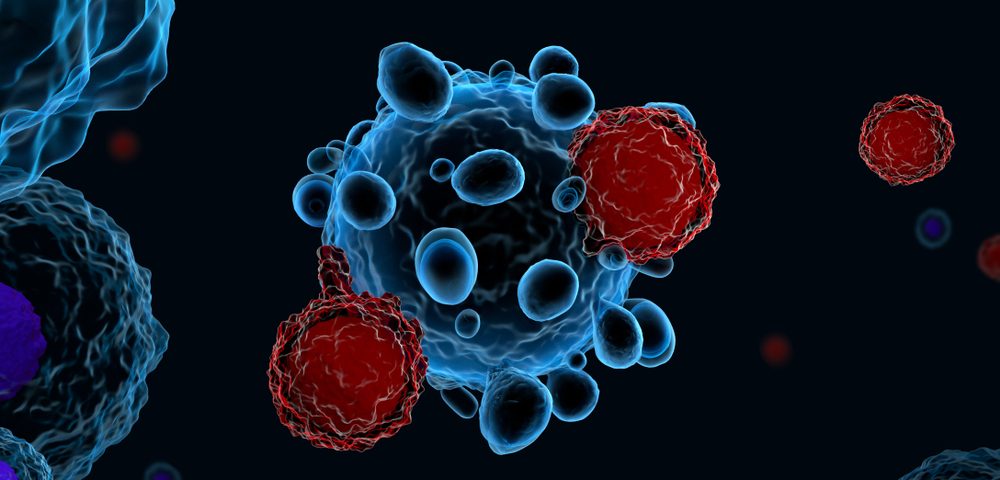Tessa Therapeutics’ investigational CD30 CAR-T cell therapy is safe and leads to a high rate of strong and sustained responses in people with relapsed or treatment-resistant Hodgkin’s lymphoma, according to data from two Phase 1/2 trials.
The trial findings were reported in “Anti-CD30 CAR-T Cell Therapy in Relapsed and Refractory Hodgkin Lymphoma,” a study published in the Journal of Clinical Oncology.
Chimeric antigen receptor T-cell therapy, more commonly known as CAR-T cell therapy, is a type of immunotherapy in which an individual’s T-cells — immune cells with anti-cancer activity — are collected and genetically modified to better recognize and eliminate cancer cells. The engineered cells are expanded in the laboratory, and then infused back into the patient to fight cancer.
Tessa’s CD30 CAR-T cell therapy is a form of the therapy that uses patient T-cells that are modified to target and attack lymphoma cells containing the CD30 protein, a type of tumor marker, on their surface.
The safety and efficacy of the therapy are being investigated in two Phase 1/2 trials, both enrolling adults with relapsed or refractory CD30-positive Hodgkin’s lymphoma. Refractory disease is one that is resistant or unresponsive to therapy. One of the trials, RELY-30 (NCT02917083), is being led by researchers at the Baylor College of Medicine; the other is being conducted by investigators at the University of North Carolina (UNC) Lineberger Comprehensive Cancer Center (NCT02690545).
The participants in both trials received a single infusion of one of three doses of modified T-cells following lymphodepletion — a procedure in which patients’ white blood cells are destroyed to make room for the new engineered T-cells — induced by one of three chemotherapy regimens: bendamustine alone, bendamustine and fludarabine, or cyclophosphamide and fludarabine.
Those achieving a partial response (partial cancer elimination) or disease stabilization after the first treatment were allowed to receive a second infusion.
A total of 41 patients who had received a median of seven prior lines of therapy (range of 2-23), including immune checkpoint inhibitors and stem cell transplants, were enrolled and treated in the two trials.
One year after receiving an infusion of modified T-cells, nearly all of the participants (94%) were alive, and around a third (36%) also showed no signs of disease worsening.
In the subset of 32 patients with active disease in whom lymphodepletion was attained using a chemotherapy regimen containing fludarabine, more than half (72%) responded to treatment, with 59% (19 patients) attaining a complete response, or complete cancer eradication.
From those who achieved a complete response, more than half (61%) remained cancer-free after one year.
“The highest dose treatment led to the complete disappearance of tumors in the majority of patients, and almost all subjects had clinical benefit,” Carlos Ramos, professor at the Center for Cell and Gene Therapy at Baylor College of Medicine, and one of the first authors of the study, said in a press release.
“As such, we believe further study of this treatment approach is warranted,” he said.
None of the patients participating in the trials experienced serious life-threatening complications similar to those reported in trials of other forms of CAR-T cell therapy.
A total of 10 individuals experienced cytokine release syndrome (CRS), a severe immune reaction caused by the rapid and strong release of substances produced by activated immune T-cells. However, all cases of CRS reported in both studies were mild.
“These data are significant, as they demonstrate that CAR-T cell therapy may be a safe and effective treatment option for patients with Hodgkin lymphoma and potentially other lymphomas expressing the CD30 antigen,” said Natalie Grover, MD, professor at the department of medicine at UNC, member of the UNC Lineberger, and also a first author of the study.
According to the researchers, these findings also indicate “there is value in exploring the use of this therapy as an earlier line of treatment for patients with this disease.”
Tessa now plans to launch a new Phase 2 trial (NCT04268706) involving adults and children with relapsed or refractory CD30-positive Hodgkin’s lymphoma to confirm these findings. The study, which has not yet opened for enrollment, will be conducted in collaboration with investigators at UNC and Baylor College.
“We are excited to collaborate with Tessa. Their ability to run multi-center cell therapy clinical trials will be invaluable for the further development of this therapy,” said Helen Heslop, director of the Center for Cell and Gene Therapy at Baylor.
Additionally, on a longer-term basis, the company plans to explore the therapeutic potential of its CD30 CAR-T cell therapy for other indications, including different types of non-Hodgkin’s lymphoma.


